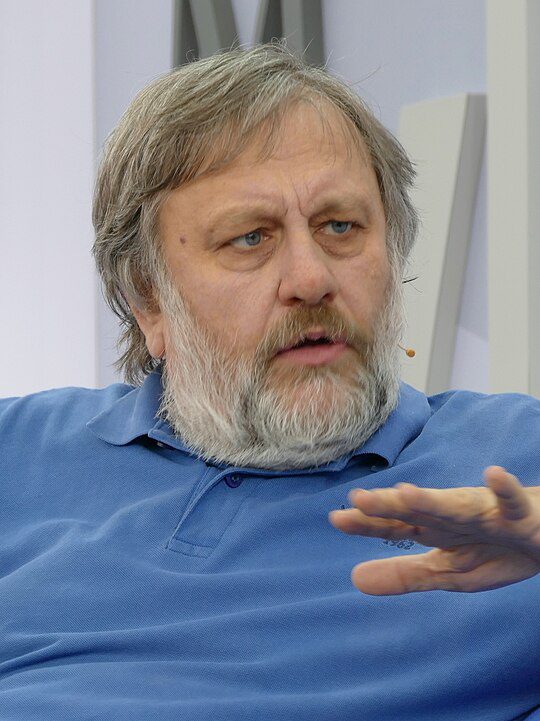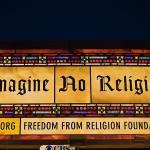Yesterday we posted about people who do not believe in God but are not atheists. Today we are posting about atheists who (sort of) believe in Christianity.
Many intellectuals are taking to heart the scholarship of Tom Holland, whose book Dominion: How the Christian Revolution Remade the World shows how the humane and democratic values that we take for granted today and that virtually all sides agree on–such as human equality, the value of peace over war, compassion for the weak, etc.–derive from Christianity alone and cannot be found in classical paganism or anywhere else. Those intellectuals typically do not believe in God, but they recognize the importance of that Christian legacy, especially as it is currently being threatened by radical Islam and the new illiberal authoritarianism.
So they are claiming that, while they are atheists, they are “cultural Christians.” Even Richard Dawkins, one of the most prominent of the “New Atheists” of a few years ago, recently said, “I call myself a cultural Christian. I’m not a believer, but there’s a distinction between being a believing Christian and being a cultural Christian.” He went on to say that “If I had to choose between Christianity and Islam, I’d choose Christianity every single time. It seems to me to be a fundamentally decent religion in a way that I think Islam is not.”
I like the rejoinders quoted at Breakpoint: “Rod Dreher pointed out that for Dawkins to claim he likes cathedrals and Christmas carols but is glad church attendance is declining is like saying he enjoys eating but is glad his country’s farms are closing.” And Tom Holland said, “Secularism & Dawkins’ own brand of evangelical atheism are both expressions of a specifically Christian culture—as Dawkins himself, sitting on the branch he’s been sawing through and gazing nervously at the ground far below, seems to have begun to realise.”
My fellow Patheos blogger Michael Jimenez, in the post I referenced in our Friday discussion “Then I Prefer My Mother” put me onto another “Christian atheist” whose concerns are actually philosophical, even (sort of) theological, the Slovenian philosopher Slavoj Žižek. He is a true atheist, a dialectical materialist and a Communist, no less. But he also draws on what he sees as the philosophy of the Apostle Paul and emphasizes the doctrine of God’s incarnation in Jesus Christ.
Let’s let Wikipedia explain his tortured thinking:
Žižek has asserted that “Atheism is a legacy worth fighting for” in The New York Times. However, he nonetheless finds extensive conceptual value in Christianity, particularly Protestantism: the subtitle of his 2000 book The Fragile Absolute is “Or, Why Is the Christian Legacy Worth Fighting For?”. Hence, he labels his position ‘Christian Atheism‘, and has written about theology at length.
In The Pervert’s Guide to Ideology, Žižek suggests that “the only way to be an Atheist is through Christianity”, since, he claims, atheism often fails to escape the religious paradigm by remaining faithful to an external guarantor of meaning, simply switching God for natural necessity or evolution. Christianity, on the other hand, in the doctrine of the incarnation, brings God down from the ‘beyond’ and onto earth, into human affairs; for Žižek, this paradigm is more authentically godless, since the external guarantee is abolished.
So only through Christ can anyone be “authentically godless”!
Žižek has just published a book to this effect: Christian Atheism: How to Be a Real Materialist. Here is the editorial description from Amazon:
Slavoj Žižek has long been a commentator on, and critic of, Christian theology. His preoccupation with Badiou’s concept of ‘the event’ alongside the Pauline thought of the New Testament has led to a decidedly theological turn in his thinking. Drawing on traditions and subjects as broad as Buddhist thought, dialectical materialism, political subjectivity, quantum physics, AI and chatbots, this book articulates Žižek’s idea of a religious life for the first time.
Christian Atheism is a unique insight into Žižek’s theological project and the first book-length exploration of his religious thinking. In his own words, “to become a true dialectical materialist, one should go through the Christian experience.” Crucial to his whole conception of ‘experience’ is not some kind of spiritual revelation but rather the logic of materialistic thought. This affirmation of Christian theology whilst simultaneously deconstructing it is a familiar Žižekian move, but one that holds deep-seated political, philosophical and, in the end, personal import for him. Here is Žižek’s most extensive treatment of theology and religion to date.
And here is the table of contents from the publisher:
Introduction: Why True Atheism HAS to be Indirect
1. Let a Religion Deplete Itself
2. Why Lacan is not a Buddhist
3. From Superpositions to Athings
4. The Sacred, The Obscene, and the Undead
5. Neque Homo Neque Deus Neque Natura
6. Why Politics is Immanently TheologicalConclusion: The Need for Psychoanalysis
What strikes me from this odd melange is his Chapter 5, with the Latin saying “Neither man, nor God, nor nature.” As I understand him, Žižek seeks an atheism and a materialism completely ungrounded by anything, with no “external guarantor of meaning.” We ought to ground ourselves neither on man (as the humanists do), on God (as religious people do), nor on nature (as the scientific rationalists do). Presumably, this is the atheist version of walking by faith.
Now I invoke a new witness better known than any literature, more compelling than any theory, more widely circulated than any publication, greater than the fullness of man – which is to say the very sum of man. O soul, step forth into our midst whether you are divine and eternal as many philosophers attest. All the more would you not lie! Or whether you are not divine, since you are material as only Epicurus suggests. All the more you ought not to lie. Whether you are received from heaven or conceived from the earth; whether you are assembled from numbers or atoms; whether you originate with the body; whether you are introduced into the body after birth. However you originate, you make of mankind a rational animal, supremely receptive to awareness and knowledge.
Tertullian goes on, exploring the relationship between the soul, nature, and God:
Go ahead and believe in your literary sources; even more believe in our divine sources. But as for the insight of the soul, believe in Nature. Select whichever of these you believe to be the faithful sister of the truth. If you have doubts as to your own sources, be assured that neither God nor Nature lie [neque deus neque natura mentitur]. In order that you may believe in both Nature and in God, believe in the soul. So it shall come to pass that you will believe in yourself. It is the soul you value as having made you as great as you are. . . .
God is everywhere and the goodness of God is everywhere. . . ..The awareness of death is everywhere. . . and the testimony of the soul is everywhere . . . .Rightly then, every soul is both defendant and witness – as much a defendant against the charge of error as a witness to the truth. And she will stand before the court of God on the day of judgment with nothing to say.
Bracing, is it not? And far less tortured than the Christian atheist. Žižek is saying that man, God, and the self do lie, so that we should never ground our lives on them. Tertullian is saying they do not lie. Tertullian is affirming all of existence because it points to God. Žižek is repudiating all of existence because it points to God.
Photo: Slavoj Žižek by Amrei-Marie – Own work, CC BY-SA 4.0, https://commons.wikimedia.org/w/index.php?curid=119893485













